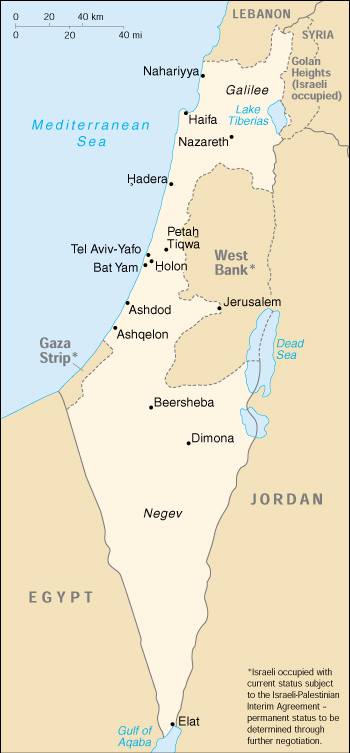

Status Quo Side: Israel
Non-Status Quo Side: Egypt
Region: Middle East
Conflict Type: Interstate
Issues in Dispute: Territory
In 1982, consistent with UN Resolution 242 and the 1978 Camp David Accords, Israel withdrew from almost all of the Sinai Peninsula which it had occupied since the 1967 Arab-Israeli war, but refused to cede to Egypt the Taba Strip, a small parcel of land along the Gulf of Aqaba. The Strip was the site of a 326-room resort hotel, popular with Israeli tourists, built by an Israeli entrepreneur in the early 1980's for $20 million. Israel claimed sovereignty over Taba, citing as justification the 1906 British boundary maps showing the land to be part of Turkish-controlled Palestine, not British-controlled Egypt. Egypt disputed Israel's claim, citing as justification the actual 1917 border demarcations (which put the Strip in Egyptian hands), pre-1967 sovereignty over the Strip, and the return of the Strip to Egypt after the 1956 Arab-Israeli war.
Following the 1978 Camp David Accords, the two countries had vowed to resolve their remaining disputes through "negotiation, conciliation, or arbitration". Nevertheless, Egyptian-Israeli relations had cooled since the Accords, reaching a new low in 1982 following the Israeli invasion of Lebanon [see LBN] and bombing of Iraq's Osirak nuclear reactor. In early 1986, however, following a period of turmoil between the Labor and Likud parties over the issue, Israel agreed to send the dispute to binding international arbitration. The US encouraged both sides, each of which received massive amounts of US aid, to negotiate remaining details, and in early September the question was formally sent to arbitration. Two years later, the arbiters (French, Swiss and Swedish international lawyers plus one representative from each disputant country) ruled in favor of Egypt. Final negotiations settled details of the decision, most importantly Israeli access to Taba.
Israel and Egypt signed an agreement that turned over the Taba Strip to Egypt. The agreement granted free Israeli access to the resort and permitted the use of Israeli water, power and currency in the Strip. Egypt purchased the Aviya Sonesta hotel resort for $38 million.